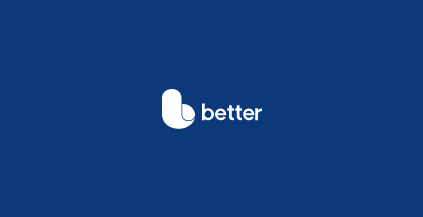8 Benefits of HR Software for Maintaining Employee Records
Employee records are an integral part of any successful business, and HR software can make the process of maintaining them much easier. Using the software offers a range of benefits—from simplifying employee information tracking to increasing data security.
In this blog post, you’ll look at 8 of the key HR software benefits for maintaining employee records.
What is an HR Software?
Human resources (HR) software is a specialized type of software designed for managing human capital. It helps employers automate various tasks related to employees in an organization and provides visibility into key performance indicators.
According to a study by Deloitte, the implementation of HR software has resulted in the creation of 3.5 million job posts for high-skilled workers. It’s no wonder many organizations are now adopting this technology to improve their HR processes.
What is the Importance of HR Record Keeping?
The importance of HR record-keeping lies in its ability to provide detailed data on employee performance over time. Accurate records enable employers to track productivity levels, evaluate employee performance reviews, analyze training results, and make necessary changes in policies or procedures.
Benefits of a Good HR System
Implementing the right HR software can provide multiple benefits to your organization. These include:
1. Convenience of an Online Portal
With this digital platform, employers can quickly make changes to employee data, such as personal information or contact details, without having to manually update each individual record. In addition, this online portal offers employees the chance to access their own records, which can range from paystubs, attendance and leave requests, and tax documents.
2. Accessible from Anywhere
With HR software, companies can easily store and access personnel data from any location—in the office or home. This makes it simple for employers and employees to stay on top of their work schedules, PTO requests, performance reviews, and other information.
3. Secure and Reliable
By using powerful encryption and other security tools, HR software helps ensure that employee data remains safe from unauthorized access or tampering. This makes it an ideal and reliable solution for storing confidential information, such as salary details, performance reviews, and medical records.
4. User-Friendly
HR software allows you to quickly and easily maintain accurate employee records without having to worry about complicated programming. With this tool, all information regarding employee files can be stored in one location—making them easier to access and manage.
5. Automated Backup
Automated backups ensure that all critical information related to employees is stored securely and readily accessible at any given time, so organizations can rest assured their data is safe and secure. This helps reduce the risk of lost or corrupted data from manual errors or other mishaps. It also eliminates the need for costly manual data entry efforts.
6. Customizable
Customizable HR systems provide companies with an overall better experience when dealing with employee data and related tasks. By giving employers the ability to modify the system according to their specific requirements, they’re empowered to easily access any important information they need with minimal effort.
7. Affordable
Most HR software solutions come with either a subscription-based model or a one-time fee. The subscription model provides access to all the features and allows you to pay on a monthly basis. On the other hand, the one-time fee gives you access to a set of features that can be upgraded as needed. This makes it easy to scale up or down based on your organization’s needs.
8. Integrations
One of the biggest advantages of using HR software is its integration capabilities. This means data from other sources, such as accounting software, can be pulled in and used to populate the HR system.
Integrating with existing accounting software also means organizations no longer have to duplicate data entry for payroll purposes. This saves time and reduces the risk of errors due to mistakes during manual inputting or copying across systems.
When making a small business accounting software comparison, make sure to compare in terms of features, cost savings, and scalability. That way, you can make the most out of your integration.
Top Features of HR System
Here are the top HR software uses and features that can help you reach your goals:
1. Streamlined Recruitment and Onboarding
A survey by CareerPlug revealed that 50% of job seekers have had a negative experience during the recruitment process. Fortunately, HR software helps automate the entire hiring process—from sourcing qualified candidates to onboarding new hires into existing systems.
It also helps streamline communication with applicants, especially when integrated with email management solutions like these MailChimp alternatives.
2. Comprehensive Benefits Management
Provides an accurate overview of benefit costs so employers can compare plans easily and budget accordingly. Administrators can also track eligibility rules for different types of plans, including medical insurance, bonuses, and vacation days.
3. Real-Time Insights and Reporting
Helps streamline reporting for HR professionals as they can quickly identify key areas for improvement. It also reduces potential errors in reporting as all data is tracked in real-time, and there are fewer chances of discrepancies between different sources.
Streamline Your Record Keeping with Optimal HR Software
HR software is a powerful tool for maintaining employee records. It streamlines the process of onboarding, tracking performance, and keeping essential documents safe. The software also provides valuable insights into workforce performance and can help inform strategic decisions.
So don’t wait—take advantage of the many benefits of HR software today and see how it can transform your business!






